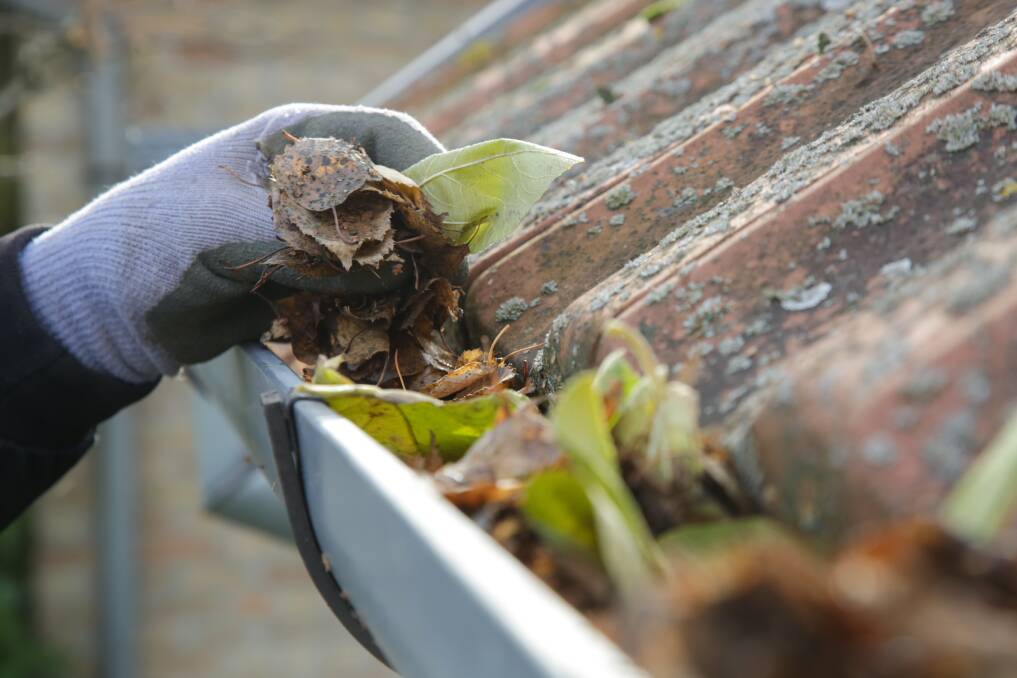Autumn Home Maintenance Checklist: A Guide For Aussie Seniors

This is branded content.
Now that the summer heat has burnt off here in Australia, you can finally get back outside and comfortably resume your home repair and maintenance work without the sun beating down on the back of your neck.
This means doing some end-of-summer gardening alongside clearing gutters, sharpening your lawn mower blades, fixing broken sprinklers, and all the other general cleaning and maintenance tasks that help keep your home in good nick.
The shift from summer to autumn is also a good time to prepare your home for upcoming winter weather.
Now is the perfect time to call in a couple of residential plumbers to fix leaks, check your piping, and maintain your water heater.
If you feel cold easily, you might even like to look into adding insulation or caulk gaps between windows and doors.
Of course, if you're a senior homeowner, it's also well worth making a list of the tasks that you will require assistance with.
To help you make the most of the autumn season, here's our definitive guide on the top home maintenance tasks that you should tick off at this time of the year.
Jobs for the professionals
Whether due to legal restrictions or just personal comfort, there is maintenance work that you'll want to call someone in for. The big ones are plumbing, electrical work, renovations, and working at heights. So test out your air conditioners and heaters, listen to your pipes, check your bathroom tiles, and get your roof examined by professionals rather than seeking to complete these specialised and potentially even dangerous tasks yourself.
And as we briefly touched upon, you might also like to consider getting insulating material added into your walls or roofing to stay warm this winter without adding to your heating costs. Autumn is the best time to get this done because you'll want all these working well when the brisk winds and winter rain come in.
Basic home maintenance
Before summer you might clear out fallen branches or cut your lawn, but autumn is all about preparing your home for wetter winter weather. The wet, the cold, and the mould are your main concerns here. This is gutter cleaning, insulation checking, and wiping down bathroom walls and roofs with vinegar to stave off mildew.
And besides those, here are some other works you should consider:
- Sweeping and clearing back verandas. Besides just improving the atmosphere of your home, you'll avoid losing any items when a storm rolls in.
- Storing away or securing big items like tables, chairs, and garden ornaments. Surprise storms can steal your favourite garden gnome or chair before you get the chance to grab it. If there's anything you think you might lose, it's worth taking some time to put it away or tie it down.
- Trimming trees and clearing branches. Storms crack branches and cause damage, so if you clear up your backyard, you won't have to worry about that.
- Varnishing wood fixtures and treating decks. Water damage cracks and warps wood, so an extra coat of varnish or lacquer will keep your home healthy for a few years to come.
- Securing loose fixtures, tarps, or scraps. Over time light fixtures loose screws, and tarps come loose, but with a few nails turns of the screwdriver they'll be secure and safe from any gusts or rain damage.
- Caulking windows, bathroom fixtures, and preventing leaks and draughts. It might seem like a minor change, but by sealing your house properly, you can enjoy lower heating bills and warmer nights.
Major home maintenance projects
There are a handful of works that you should be doing regularly. This includes things like getting checked for white ants, electrical safety checks, plumbing checks, and smoke alarms. If you haven't had these checks done in the last five years, you'll want to get started.
For white ants, you'll have to call in a specialist to examine your home. They'll check for damage and degradation of wood, and hopefully give you the all clear. Plumbing and electrics also need a professional touch- you don't want to check your wall sockets yourself- but your smoke alarms and carbon monoxide alarms are easily done by hand. You can screw these in with an electric drill, or just replace the battery with a ladder.
Additionally, there are a few niche jobs you may need done. The first is having someone check the salinity of your soil. High amounts of salt in your environment invades brickwork and causes structural damage. You might also like to buy a dehumidifier if your house is prone to mould, and if you're having trouble walking or climbing your stairs, you should consider installing assistive technology like a chair lift.
Which tools should I have on hand for home maintenance?
Thankfully, most of the work you'll be doing doesn't require anything big or electrical- you can save that kind of work for the professionals. Instead, you'll want a toolbox of handy items:
- Gloves and gardening clothes.
- Safety glasses for trimming branches and clearing debris.
- Secateurs and a tree pruner.
- A caulk gun and sponges.
- A gutter cleaner.
With these and other household objects, you'll be able to clean up your home, but you might also like to consider buying an electric drill and a set of screws to repair failing cabinets, secure hinges, and even do a little carpentry.
Conclusion
Autumn and spring are the best times to improve your home and garden. If you want to take it to the next level, you can take on major cleaning projects like hiring out a pressure washer to clean your brickwork and driveway, or a carpet cleaner for a deep clean. Once you've completed your basic maintenance work for the year, you can branch out into the fun stuff like interior design, planting a vegetable garden, or getting renovation work done.


